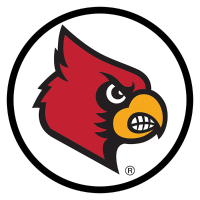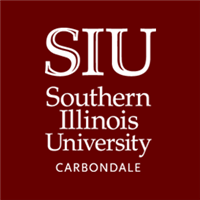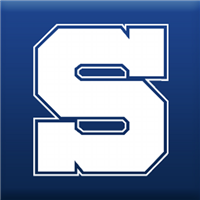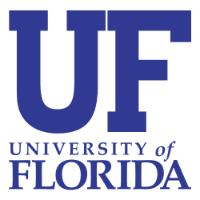What do they do?
Teach occupational, vocational, career, or technical subjects to students at the secondary school level.
Also known as:
Agricultural Education Instructor, Agricultural Education Teacher, Agriculture Education Instructor, Agriculture Teacher, Agriscience Instructor, Allied Health Teacher, Auto Mechanics Instructor (Automotive Mechanics Instructor), Automotive Instructor, Automotive Teacher, Automotive Technology Instructor, Building Trades Teacher, Business and Computer Technology Instructor, Business and Marketing Teacher, Business Education Teacher, Business Teacher, Business Technology Teacher, Career Education Teacher, Career Technology Teacher, Carpentry Instructor, Carpentry Teacher, Computer Science Teacher, Computer Teacher, Construction Technology Instructor, Cosmetology Instructor, Cosmetology Teacher, Culinary Arts Instructor, Drafting Instructor, Electronics Teacher, Family and Consumer Sciences Teacher (FACS Teacher), Health Science Instructor, Health Science Technology Education Teacher (HSTE Teacher), Industrial Technology Teacher, Instructor, Marketing Education Teacher, Masonry Teacher, Teacher, Technology Education Teacher, Vocational Auto Body Instructor (Vocational Automotive Body Instructor), Vocational Childcare Teacher, Vocational Education Teacher, Vocational Teacher, Welding Instructor
-
5.9%
Change
Ranks #31 in job growth rate380Job Openings
Ranks #4 in net job growth
-
University of Louisville
Louisville, KY
-
Southern Illinois University-Carbondale
Carbondale, IL
-
University of Wisconsin-Stout
Menomonie, WI
-
State University of New York at Oswego
Oswego, NY
-
University of Florida
Gainesville, FL
Looking for colleges that offer a specific major? Use the College Match Tool to find your best-matched schools and discover your estimated Net Price!
- Doctorate or Professional Degree (5%)
- Master's degree (52%)
- Bachelor's degree (40%)
- Associate's degree (2%)
- Some college, no degree (2%)
- High school diploma equivalent (<1%)
- Less than high school diploma (<1%)
Most Popular Majors that prepare Career/Technical Education Teachers, Secondary School
-
#1
-
Degrees Granted
760
-
Female Students
542
-
Male Students
218
-
Median Starting Salary
$35,300
-
-
#2
-
Degrees Granted
376
-
Female Students
189
-
Male Students
187
-
Median Starting Salary
$41,600
-
-
#3
-
Degrees Granted
220
-
Female Students
48
-
Male Students
172
-
Median Starting Salary
$35,300
-
-
#4
-
Degrees Granted
190
-
Female Students
181
-
Male Students
9
-
Median Starting Salary
$35,300
-
-
#5
-
Degrees Granted
139
-
Female Students
77
-
Male Students
62
-
Median Starting Salary
$35,300
-
People in this career often have these skills:
- Instructing - Teaching others how to do something.
- Reading Comprehension - Understanding written sentences and paragraphs in work-related documents.
- Active Listening - Giving full attention to what other people are saying, taking time to understand the points being made, asking questions as appropriate, and not interrupting at inappropriate times.
- Speaking - Talking to others to convey information effectively.
- Writing - Communicating effectively in writing as appropriate for the needs of the audience.
- Critical Thinking - Using logic and reasoning to identify the strengths and weaknesses of alternative solutions, conclusions, or approaches to problems.
- Learning Strategies - Selecting and using training/instructional methods and procedures appropriate for the situation when learning or teaching new things.
- Monitoring - Monitoring/Assessing performance of yourself, other individuals, or organizations to make improvements or take corrective action.
- Social Perceptiveness - Being aware of others' reactions and understanding why they react as they do.
- Coordination - Adjusting actions in relation to others' actions.
- Service Orientation - Actively looking for ways to help people.
- Complex Problem Solving - Identifying complex problems and reviewing related information to develop and evaluate options and implement solutions.
- Active Learning - Understanding the implications of new information for both current and future problem-solving and decision-making.
- Judgment and Decision Making - Considering the relative costs and benefits of potential actions to choose the most appropriate one.
- Time Management - Managing one's own time and the time of others.
People in this career often know a lot about:
- Education and Training - Knowledge of principles and methods for curriculum and training design, teaching and instruction for individuals and groups, and the measurement of training effects.
- Customer and Personal Service - Knowledge of principles and processes for providing customer and personal services. This includes customer needs assessment, meeting quality standards for services, and evaluation of customer satisfaction.
- English Language - Knowledge of the structure and content of the English language including the meaning and spelling of words, rules of composition, and grammar.
- Computers and Electronics - Knowledge of circuit boards, processors, chips, electronic equipment, and computer hardware and software, including applications and programming.
- Administrative - Knowledge of administrative and office procedures and systems such as word processing, managing files and records, stenography and transcription, designing forms, and workplace terminology.
- Administration and Management - Knowledge of business and management principles involved in strategic planning, resource allocation, human resources modeling, leadership technique, production methods, and coordination of people and resources.
- Psychology - Knowledge of human behavior and performance; individual differences in ability, personality, and interests; learning and motivation; psychological research methods; and the assessment and treatment of behavioral and affective disorders.
- Communications and Media - Knowledge of media production, communication, and dissemination techniques and methods. This includes alternative ways to inform and entertain via written, oral, and visual media.
- Personnel and Human Resources - Knowledge of principles and procedures for personnel recruitment, selection, training, compensation and benefits, labor relations and negotiation, and personnel information systems.
People in this career often have talent in:
- Oral Comprehension - The ability to listen to and understand information and ideas presented through spoken words and sentences.
- Oral Expression - The ability to communicate information and ideas in speaking so others will understand.
- Speech Clarity - The ability to speak clearly so others can understand you.
- Written Comprehension - The ability to read and understand information and ideas presented in writing.
- Written Expression - The ability to communicate information and ideas in writing so others will understand.
- Problem Sensitivity - The ability to tell when something is wrong or is likely to go wrong. It does not involve solving the problem, only recognizing that there is a problem.
- Near Vision - The ability to see details at close range (within a few feet of the observer).
- Speech Recognition - The ability to identify and understand the speech of another person.
- Deductive Reasoning - The ability to apply general rules to specific problems to produce answers that make sense.
- Inductive Reasoning - The ability to combine pieces of information to form general rules or conclusions (includes finding a relationship among seemingly unrelated events).
- Category Flexibility - The ability to generate or use different sets of rules for combining or grouping things in different ways.
- Information Ordering - The ability to arrange things or actions in a certain order or pattern according to a specific rule or set of rules (e.g., patterns of numbers, letters, words, pictures, mathematical operations).
People in this career often do these activities:
- Apply multiple teaching methods.
- Establish rules or policies governing student behavior.
- Monitor student performance.
- Monitor student behavior, social development, or health.
- Evaluate student work.
- Develop instructional objectives.
- Plan educational activities.
- Maintain student records.
- Teach others to use technology or equipment.
- Set up classroom materials or equipment.
- Assign class work to students.
- Discuss problems or issues with supervisors.
- Discuss student progress with parents or guardians.
- Teach vocational courses.
- Create technology-based learning materials.
- Administer tests to assess educational needs or progress.
- Prepare tests.
- Enforce rules or policies governing student behavior.
- Encourage students.
- Plan experiential learning activities.
- Supervise student research or internship work.
- Advise students on academic or career matters.
- Assist students with special educational needs.
- Perform student enrollment or registration activities.
- Develop strategies or programs for students with special needs.
- Coordinate student extracurricular activities.
- Collaborate with other teaching professionals to develop educational programs.
- Attend training sessions or professional meetings to develop or maintain professional knowledge.
- Select educational materials or equipment.
- Distribute instructional or library materials.
- Order instructional or library materials or equipment.
- Stay informed about current developments in field of specialization.
- Prepare reports detailing student activities or performance.
- Serve on institutional or departmental committees.
- Supervise school or student activities.
This page includes data from:

 Occupation statistics: USDOL U.S. Bureau of Labor Statistics Occupational Employment Statistics
Occupation statistics: USDOL U.S. Bureau of Labor Statistics Occupational Employment Statistics
 Videos: CareerOneStop, USDOL/ETA and the Minnesota Department of Employment & Economic Development
Videos: CareerOneStop, USDOL/ETA and the Minnesota Department of Employment & Economic Development









